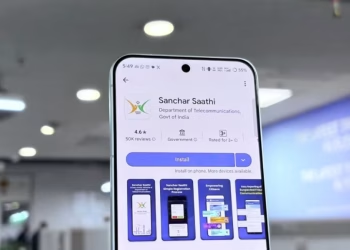Panasonic Corp. is preparing to become a major manufacturer of Tesla Inc.’s new, more powerful battery, which the Japanese electronics company claims fit the needs of its high-flying customer.
Panasonic has been developing on a larger “4680” battery that it plans to offer to the American electric carmaker for the past year and a half. Because the battery has a greater capacity, it requires fewer cells and related elements to power an electric vehicle, prompting Tesla CEO Elon Musk to hail the technology as the key to unlocking $25,000 electric vehicles.
In a recent interview at Panasonic’s headquarters in Osaka, Kazuo Tadanobu, chief executive officer of the company’s energy unit, stated that developing the new batteries has “taken an enormous amount of stamina” during the previous months.
While it may be tempting to explore ways to squeeze more energy into existing cell sizes, Tadanobu remarked that changing the overall design took “great nerve,” and that “we didn’t know how they would be received.” According to the executive, Tesla has admitted that Panasonic’s new batteries are viable and reach the level of performance it seeks. The Model 3 starts at roughly $41,000 with tax incentives.
Panasonic expects to begin commercial production of 4680 batteries in the fiscal year beginning April 2023, with two new manufacturing lines and facilities planned for its Wakayama factory in western Japan. Ahead of that, the business is establishing a prototype battery production line in Japan.
The Japanese electronics behemoth’s foray into next-generation batteries is a risky move. Panasonic has been slower to scale up than rivals LG Energy Solution and Contemporary Amperex Technology Co., citing the safety advantage of their cells and emphasising that profits come before market share.

Tadanobu stated that no decision has been made on a new factory at this time. Panasonic is currently focusing on laying a “strong basis” for future 4680 productions at its Wakayama factory in Japan, he said, adding that the location of prospective new facilities will be assessed based on partnerships and the economics of certain places.
The difficulties connected with mass-producing 4680 cells have been warned by analysts and even Musk himself. Because of its larger size and construction, the battery is more prone to particle contamination, which is a common cause of EV battery fires and happens when minute metal fragments find their way into the cell’s centre.
Panasonic’s endeavour with the new batteries is ultimately motivated by a deep sense that the cells can alter the world of transportation, according to Tadanobu. According to him, the 4680 battery will have a “significant impact” in lowering the cost of EVs, allowing them to spread more broadly. According to the CEO, this will help reduce carbon emissions around the world.
Also Read:
The 2022 iPhone SE is a beast in performance with the A15 Bionic Chip








